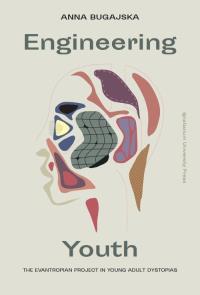
Engineering Youth
The Evantropian Project in Young Adult Dystopias
-
Autor: Anna Bugajska
- ISBN: 9788376144092
- EAN: 9788376144092
- Oprawa: Miękka
- Wydawca: Akademia Ignatianum
- Format: 15.0x23.0cm
- Język: angielski
- Liczba stron: 277
- Rok wydania: 2019
- Wysyłamy w ciągu: niedostępny
-
Brak ocen
-
34,04złCena detaliczna: 58,80 złNajniższa cena z ostatnich 30 dni: 34,04 zł
Artykuł chwilowo niedostępny
x
In contemporary philosophy and bioethics the human enhancement topic is extremely popular. Some of the analyses and reflections do not leave the specialist circle, which is not a positive phenomenon as the discussion about our common human future should be open also to those who do not have scientific or philosophical background. This lacuna can be filled by literature, which allows to portray some ideas and projects in a more approachable way. The book makes evident that the images of the (post)human and the (post)human society should be subject to a complex analysis because under the surface of the literary images we can trace the presence of a utopian discourse reposing on particular ontological, anthropological, ethical and social presuppositions, worth further evaluation.
Rev. Grzegorz Hołub (The Pontifical University of John Paul II in Krakow)
The book is situated at the intersection of the literature studies, culture studies, philosophy and sociology. It analyses the titular evantropian—human enhancement—project in a broad range of juvenile fiction, showing how the novels for young audiences are an “in vitro” test for hypothetical and imagined futures. The author argues that this fiction can to a considerable extent shape the common beliefs not only about the future but above all about science, technology, medicine, aesthetics and values, which subsequently influence the readers’ perspectives and decisions. The conclusions can be of help for the scholars in literature and culture, but also more broadly: for educators, psychologists or simply parents interested in what contemporary juvenile fiction has to offer to their children.
Barbara Klonowska (John Paul II Catholic University of Lublin)

